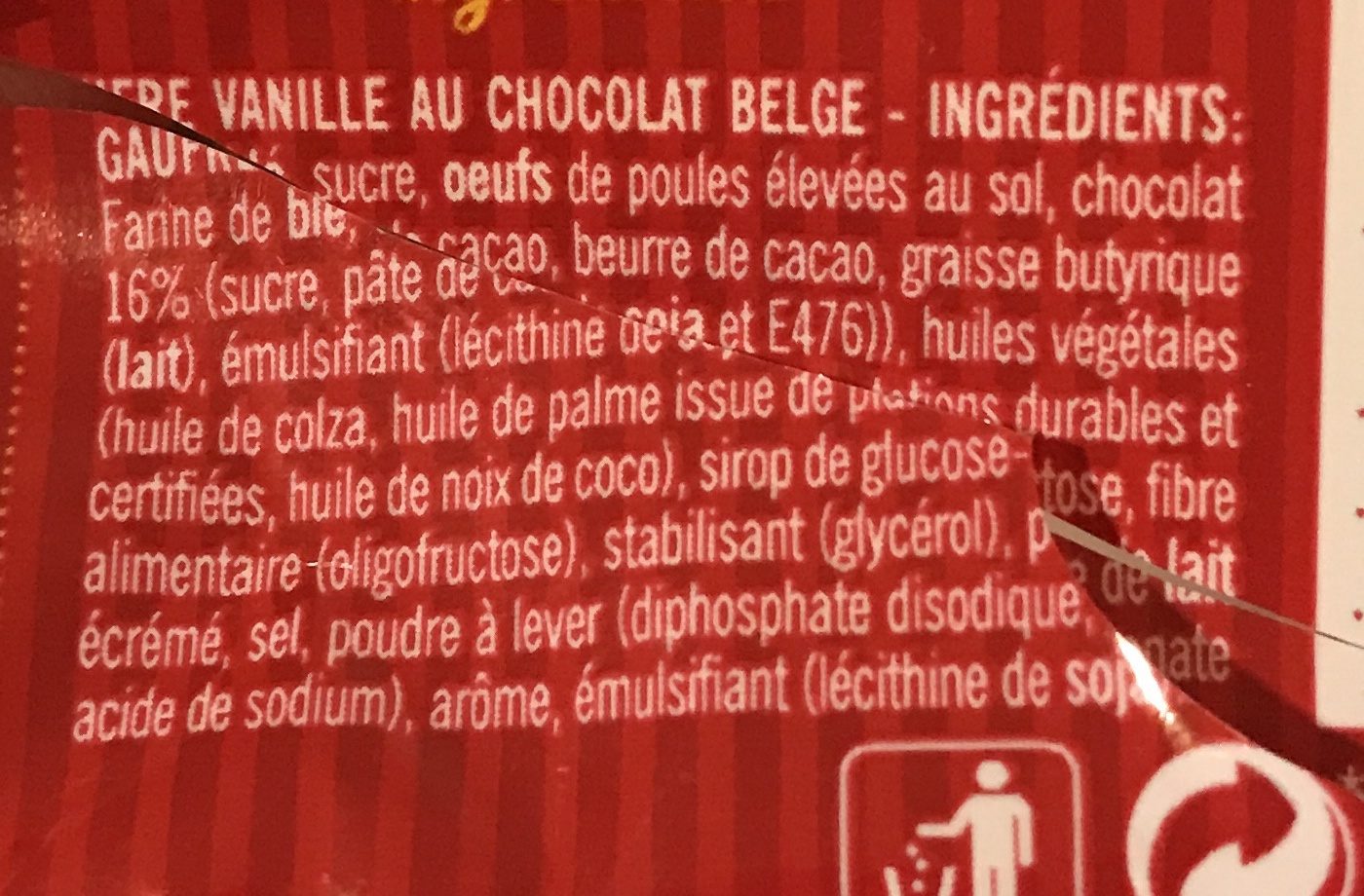Suzy gaufres vanille - chocolat - Lotus - 8 x 37 g
This product page is not complete. You can help to complete it by editing it and adding more data from the photos we have, or by taking more photos using the app for Android or iPhone/iPad. Thank you!
×
Barcode: 5410126014181 (EAN / EAN-13)
Quantity: 8 x 37 g
Packaging: fr:Film plastique (emballage individuel)
Brands: Lotus
Categories: Snacks, Sweet snacks, Biscuits and cakes
Labels, certifications, awards: No preservatives, No colorings, fr:Au chocolat belge
Manufacturing or processing places: Belgique
Matching with your preferences
Environment
Packaging
Transportation
Threatened species
Report a problem
Data sources
Product added on by openfoodfacts-contributors
Last edit of product page on by drouvin.
Product page also edited by countrybot, inf, kiliweb, yuka.D49EFvuPB9EoNvXf6Lpo3zuAP-TpMd9rQFwQog, yuka.VnJnaFFKWW90TWNhbDg4VDFFM2wzK0JvM3E2TllXL3NNZlFWSVE9PQ, yuka.sY2b0xO6T85zoF3NwEKvlnMXQ_T5s2ufDh3RsEGX2vmkI6znO9tUxJTKF6s.








